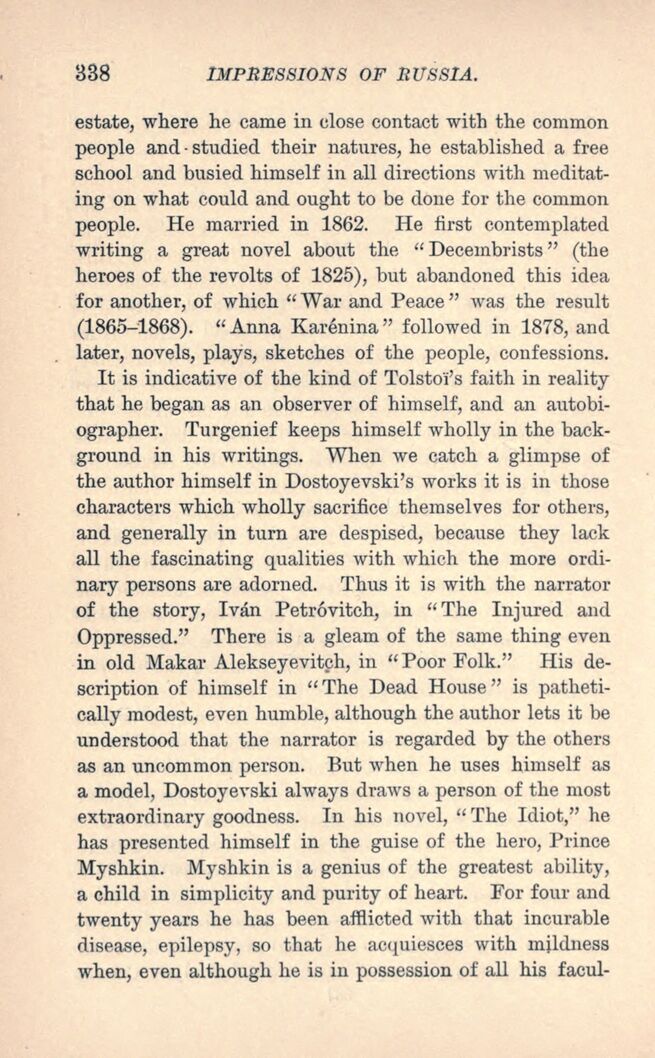
Full resolution (JPEG) - On this page / på denna sida - Impressions of Russian Literature - VII

<< prev. page << föreg. sida << >> nästa sida >> next page >>
Below is the raw OCR text
from the above scanned image.
Do you see an error? Proofread the page now!
Här nedan syns maskintolkade texten från faksimilbilden ovan.
Ser du något fel? Korrekturläs sidan nu!
This page has been proofread at least once.
(diff)
(history)
Denna sida har korrekturlästs minst en gång.
(skillnad)
(historik)
estate, where he came in close contact with the common
people and studied their natures, he established a free
school and busied himself in all directions with
meditating on what could and ought to be done for the common
people. He married in 1862. He first contemplated
writing a great novel about the “Decembrists” (the
heroes of the revolts of 1825), but abandoned this idea
for another, of which “War and Peace” was the result
(1865-1868). “Anna Karénina” followed in 1878, and
later, novels, plays, sketches of the people, confessions.
It is indicative of the kind of Tolstoï’s faith in reality
that he began as an observer of himself, and an
autobiographer. Turgenief keeps himself wholly in the
background in his writings. When we catch a glimpse of
the author himself in Dostoyevski’s works it is in those
characters which wholly sacrifice themselves for others,
and generally in turn are despised, because they lack
all the fascinating qualities with which the more
ordinary persons are adorned. Thus it is with the narrator
of the story, Iván Petróvitch, in “The Injured and
Oppressed.” There is a gleam of the same thing even
in old Makar Alekseyevitch, in “Poor Folk.” His
description of himself in “The Dead House” is
pathetically modest, even humble, although the author lets it be
understood that the narrator is regarded by the others
as an uncommon person. But when he uses himself as
a model, Dostoyevski always draws a person of the most
extraordinary goodness. In his novel, “The Idiot,” he
has presented himself in the guise of the hero, Prince
Myshkin. Myshkin is a genius of the greatest ability,
a child in simplicity and purity of heart. For four and
twenty years he has been afflicted with that incurable
disease, epilepsy, so that he acquiesces with mildness
when, even although he is in possession of all his
<< prev. page << föreg. sida << >> nästa sida >> next page >>